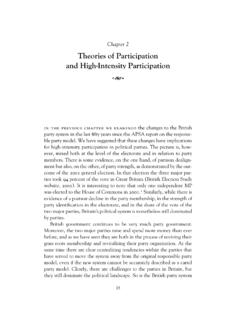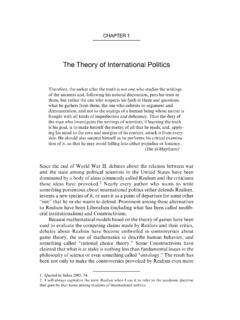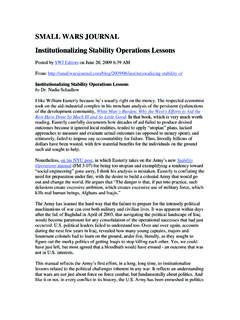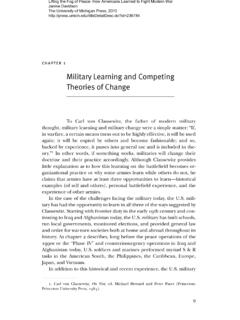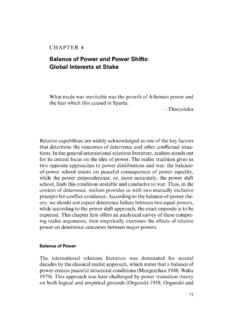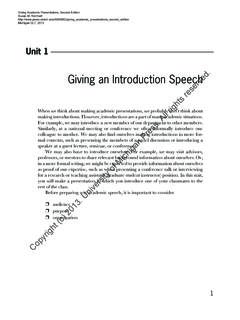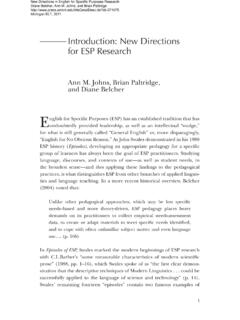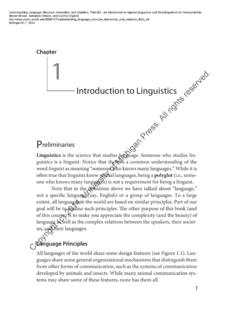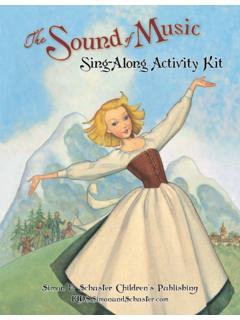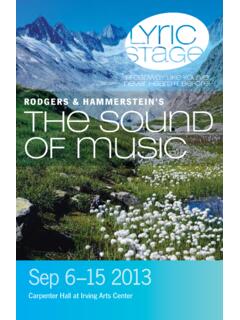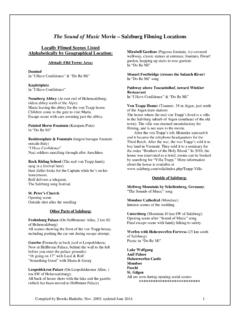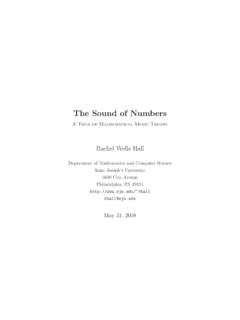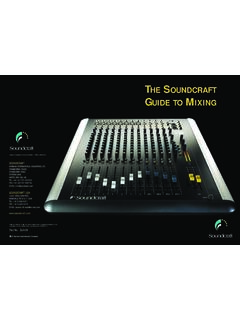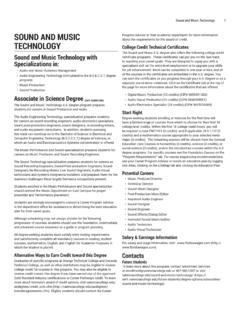Transcription of What Is Soul? (And What Is Soul Music?)
1 Chapter 1 What Is Soul? (And What Is Soul Music?) A person s soul is a person s essence, that part of our being which can soar toheaven. Gospel is the music of that essence, and the church is its home. stax museum of american soul music The basic thing is soul feeling. The same in blues as in spirituals. And alsowith gospel music . It is soul music . mahalia jackson This sound was just pulled from the gospel roots and the blues roots .. andthey tagged it soul music because people just stood and sang from their guts,you know, whatever they felt, they just let it come out. carla thomas What is Soul ? What a question!
2 Dick hebdige I ve been a musician longer than I ve been a philosopher. I started pianolessons at the age of seven. My teachers were all very serious and accom-plished classical musicians, and I m afraid I was something of a disap-pointment to them. I think the discipline required to perform the classi-cal piano repertoire well was just too demanding and exacting for myyouthful attention span and mischievous spirit. I stuck with it for aboutten years, though I was clearly not going to make it as a classical I had a good ear good enough to get by without really developingmuch sight-reading ability and anyway I was more interested in rock &roll and boogie-woogie, styles of piano playing that were developed andtransmitted primarily as oral musical traditions (not essentially relianton notation).
3 One of the earliest pieces I tried to learn off the radio was RayCharles s What d I Say? This was in 1959 when I was twelve years tune is a simple repetitive 3-chord 12-bar blues, but it is not easy to8 ISoul music : Tracking the Spiritual Roots of Pop from Plato to Motown Joel Rudinow The University of Michigan Press, 2010play. On the record Ray s left hand holds down a Latin rhythmic gure,de ning the chords, against which the right hand plays a second rhyth-mic gure, coloring the chords, and executes an ornate and excitingarpeggiated turnaround. Over the top of this Ray engages in a playfuland passionate game of call-and-response with his group of femalebackup singers, the Raelettes.
4 It was a real watershed record. Ray Charleswas changing the musical landscape by bringing musical elements fromthe African American church together with the blues into what wouldsoon become known as soul music . The record was controversial, ofcourse. Although it sold massively across the color line, becoming Ray s rst million seller, it was banned in many regions as too suggestive in itsthinly veiled celebration of sexual intercourse. Ray s deployment ofgospel elements in combination with the blues was also at issue, as he re-counts in his got letters accusing me of bastardizing God s work.
5 A big-timepreacher in New York scolded me before his congregation. Many folkssaw my music as didn t know it at the time, but grappling with What d I Say? as atwelve-year-old piano student gave me my rst glimpse of one of the cen-tral puzzles of this book. It is a puzzle lurking at the heart of soul music a puzzle bringing one of the most profound philosophical, spiritual, andreligious mysteries (the soul) together with one of America s mostdeeply troubling ongoing social and political issues (racism) in the dy-namic ux of vernacular popular culture. And, as I shall try to show, itgoes also to the heart of philosophy of music .
6 Defining Soul MusicThe word soul found its way into the discourse of American popular cul-ture initially through music and spread out from there. African Ameri-can essayist and playwright Amiri Baraka (LeRoi Jones) notes that in the1950s the word was used by jazz musicians and critics alike to character-ize a movement within jazz to reclaim and revitalize a musical traditionthat had been repeatedly co-opted by mainstream and corporate uses soul to name an ingredient so essential to African Americanmusic that its absence would cause a knowledgeable listener to questionthe authenticity (as African American music ) of what they were hear-ing.
7 2As Baraka uses the term, soul denotes an essence: the necessaryand suf cient condition of authentic blackness. In this application theword establishes, or honors, a lineage linking African American secularWhat Is Soul? 9 Soul music : Tracking the Spiritual Roots of Pop from Plato to Motown Joel Rudinow The University of Michigan Press, 2010musical innovations with the work of the African American church. Ac-cording to Baraka s analysis, the musicians about whom the term was rstused in the 1950s Horace Silver, Art Blakey, Max Roach, CliffordBrown, and John Coltrane were drawing upon the distinctive call-and-response cadences of preacher and congregation and the frenzy of spiritpossession characteristic of many African American church services.
8 Andthey did so in conscious reaction and resistance to what they understoodas the racist and therefore culturally and politically repressive conditionsin 1950s America. Speci cally they were aiming to restore vitality and au-thenticity to a music they felt had been tamed, or domesticated, and nally stolen for pro table mass distribution and consumption by afundamentally racist culture industry, the music industry, serving a fun-damentally racist the next decade the term became a potent signi er of solidaritywithin the African American community in the struggle for black power,and as such it was applied to all manner of cultural production and ex-pression from cuisine (soul food) to hairstyles (soul patch)
9 And specialrecognition handshakes (soul brother). At the same time the term wasalso being taken up within the music industry, where it shifted from jazzto function rst as a label for a distinctive style of pop music and later asa demographic (and racially speci c) marketing category label, replac-ing the term rhythm & blues,which itself had replaced is ironicthough predictable that the prevailing conventional usage of soul in thediscourse of American popular culture, including the scholarly litera-ture, re ects music industry practice over time and thus has by and largelost touch with the jazz references.
10 Accordingly, what people generallyunderstand, when they see references to soul music , is a style or cate-gory of pop music dating from the late earliest developments within this category of pop are generallyagreed to be the crossover of Sam Cooke, lead singer in the gospel groupthe Soul Stirrers, to the pop charts in 1957 with the hit single You SendMe. The style comes to full ower with the breakthrough work of RayCharles, combining stylistic elements of gospel music with rhythm &blues and rock & roll. And it culminates, climactically, in the mid- andlate-1960s in the monumental work of Aretha Franklin (the Queen ofSoul ) and the still owering genius of Stevie Wonder.

